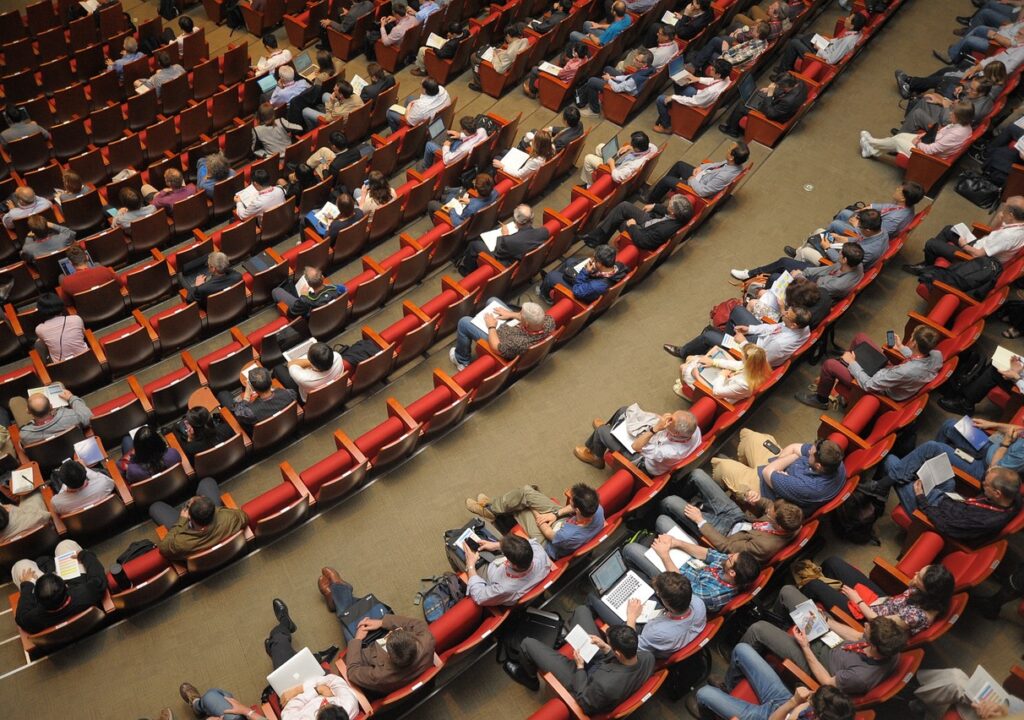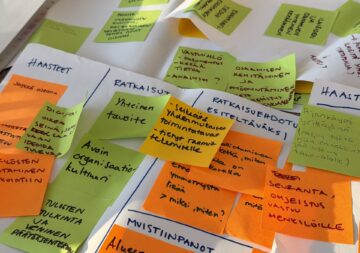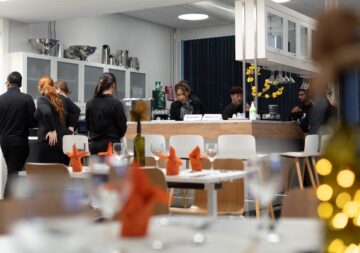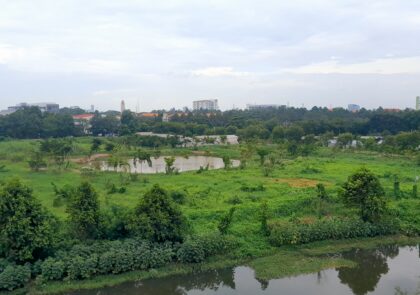
Academic conferences are not just about knowledge dissemination, idea exchange, and collaboration among scholars, researchers, and professionals. They can transform host destinations beyond their educational purposes, sparking a wave of economic, social, and cultural growth. These events significantly impact host destinations, enhancing their reputation and attractiveness. This blog delves into these transformative impacts, highlighting the potential of academic conferences to inspire and drive change in host communities.
Author: Johanna Heinonen
Economic, Social and Cultural Impact of Hosting Academic Conferences
Hosting academic conferences provides immediate economic benefits by attracting a diverse group of attendees—academics, researchers, industry professionals, and students—who contribute to the local economy by spending on accommodation, dining, transportation, and entertainment. This influx can significantly boost tourism revenue as many attendees extend their stay to explore the host city (Monroy-Rodríguez & Caro-Carretero 2023). However, the impact extends beyond the immediate boost, as academic conferences stimulate long-term economic growth by creating temporary employment opportunities in the hospitality and service sectors, which is especially beneficial for cities that do not typically attract tourists (Jones & Li 2015). Universities play a crucial role in this economic dynamic by providing logistical support and infrastructure and ensuring an inclusive and efficient conference experience.
Beyond economic benefits, academic conferences foster social and cultural exchange by bringing together individuals from diverse backgrounds. These events, featuring panel discussions, workshops, and networking sessions, facilitate intercultural dialogue and promote tolerance and inclusivity within the host community. Cultural programs and activities, often organised by universities in partnership with local cultural institutions, showcase the host destination’s heritage and traditions, enriching attendees’ understanding of local culture and fostering pride and community cohesion among residents (Arcodia & Whitford 2007; Canali & d’Angella 2009; Kastenholz & Gronau 2022). This cultural exchange is a significant and often overlooked benefit of hosting academic conferences.
Enhancing Academic, Professional, and Community Development
Hosting academic conferences significantly enhances the host destination’s educational, professional, and community landscape. These events allow local scholars and students to present their work, network with international peers, and gain exposure to cutting-edge research. By attracting high-profile speakers and experts, academic conferences foster a culture of excellence and innovation within the local academic community. Universities also organise supplementary workshops and sessions to disseminate innovative practices and research (Carayannis & Morawska-Jancelewicz 2022; McClements et al. 2024).
Moreover, universities play a crucial role in developing a knowledge economy by attracting scholars, researchers, and industry professionals, thereby positioning the area as a hub of intellectual and innovation activity. This reputation can attract investment in research and development, leading to the growth of knowledge-based industries and high-skilled jobs (Carayannis & Morawska-Jancelewicz 2022). Academic conferences also stimulate the local economy by driving demand for research and education-related services, fostering collaboration between universities and local businesses, and generating revenue through research partnerships, consulting, and technology transfer initiatives. These activities contribute to long-term economic growth and job creation in the host destination (Matthews 2018).
In addition to academic and economic benefits, hosting academic conferences enhances community engagement and development. Universities engage local businesses, government agencies, and community organisations in planning and executing these events, fostering collaboration and shared purpose, which benefits both the university and the broader community (Rogers & Davidson, 2015). Involving students in organising and participating in conferences provides valuable professional development opportunities, fostering a sense of civic responsibility and enhancing their academic and career prospects (Rushton et al. 2021).
Successful academic conferences also boost the host city’s reputation and attractiveness, positioning it as a vibrant hub of intellectual and cultural activity. Attendees’ positive experiences can lead to increased tourism and business opportunities, as they are likely to return or recommend the destination, contributing to sustained economic growth and bolstering the local economy. This marketing value further enhances the host destination’s reputation and attractiveness (Getz 2013).
Challenges, Considerations, and the Role of Universities
While hosting academic conferences offers substantial benefits, it’s crucial to acknowledge and address several challenges and considerations. One primary challenge is the logistical and infrastructural demands of organising large-scale events. Host cities need adequate facilities such as conference centres, hotels, and transportation networks to accommodate attendees. This requires careful planning and collaboration, underscoring the need for these elements to ensure successful and beneficial events for the host destination.
Environmental impact is another significant consideration. Large gatherings can generate substantial waste and carbon emissions, mainly from air travel. Host destinations can mitigate this by implementing sustainable practices, such as promoting eco-friendly transportation options, reducing waste, and encouraging sustainable behaviours among attendees. Prioritising sustainability allows academic conferences to contribute to the host destination’s environmental goals and promote eco-conscious event planning (Monroy-Rodríguez & Caro-Carretero 2023).
Universities like LAB and LUT can be crucial in addressing these challenges and maximising the benefits of academic conferences for regions such as South Karelia and Päijät-Häme. Through logistical support, academic contributions, and the promotion of local culture and resources, universities enhance these events’ overall value and significance. They also engage with local communities, fostering collaboration and shared purpose, which benefits both the university and the broader community.
Moreover, universities help develop a knowledge economy by attracting scholars, researchers, and industry professionals, positioning the host area as a hub of intellectual and innovation activity. This reputation can attract further investment in research and development, leading to the growth of knowledge-based industries and high-skilled jobs. By leveraging their resources and expertise, universities can ensure that academic conferences are intellectually enriching and beneficial to the host destination’s economic, social, and cultural landscape. They can also help address logistical, infrastructural, and environmental challenges, ensuring that academic conferences provide communities with economic, social, and cultural enrichment.
References
Arcodia, C. & Whitford, M. 2006. Festival Attendance and the Development of Social Capital. Journal of Convention & Event Tourism. 8(2). 1–18. Cited 17.5.2024. Available at https://doi.org/10.1300/J452v08n02_01
Canali, S, & d’Angella, F. 2009. Managing Cultural Events and Meetings Activities in European Urban Destinations. International Journal of Arts Management. 11(3). 59–72. Cited 17.5.2024. Available at https://www.jstor.org/stable/41064998
Carayanni, E. G., & Morawska-Jancelewicz, J. 2022. The Futures of Europe: Society 5.0 and Industry 5.0 as Driving Forces of Future Universities. Journal of the Knowledge Economy. 13(4). 3445–3471. Cited 17.5.2024. Available at https://doi.org/10.1007/s13132-021-00854-2
Getz, D. 2013. Event tourism: concepts, international case studies, and research. Cognizant Communication Corporation.
Jones, C. & Li, S. 2015. The economic importance of meetings and conferences: A satellite account approach. Annals of Tourism Research. 52. 117–133. Cited 17.5.2024. Available at https://doi.org/10.1016/j.annals.2015.03.004
Kastenholz, E. & Gronau, W. 2022. Enhancing Competences For Co-Creating Appealing and Meaningful Cultural Heritage Experiences in Tourism. Journal of Hospitality & Tourism Research (Washington, D.C.). 46(8). 1519–1544. Cited 17.5.2024. Available at https://doi.org/10.1177/1096348020951637
Matthews, K. D. 2018. A Systematic Review of the Factors Influencing an Effective University Partnership with External Entities for Regional and Local Economic Development. Doctoral dissertation.University of Maryland University College. Cited 17.5.2024. Available at https://www.proquest.com/pqdtglobal/docview/2179952683/abstract/B67A608BD0F54242PQ/1
McClements, D.J., McClements, J. & McClements, I.F. 2024. Conferences and Networking: Getting to Know the Science and the People Behind It. In: How to be a Successful Scientist. Springer, Cham. Cited 17.5.2024. Available at https://doi.org/10.1007/978-3-031-51402-9_8.
Monroy-Rodríguez, S. & Caro-Carretero, R. 2023. Congress tourism: Characteristics and application to sustainable tourism to facilitate collective action towards achieving the SDGs. Cogent Business & Management. 10(3). Cited 17.5.2024. Available at https://doi.org/10.1080/23311975.2023.2286663
Rogers, T. & Davidson, R. 2015. Marketing Destinations and Venues for Conferences, Conventions and Business Events. 2nd ed. Routledge. Cited 17.5.2024. Available at https://doi.org/10.4324/9781315723716
Rushton, E. A. C., Charters, L. & Reiss, M. J. 2021. The experiences of active participation in academic conferences for high school science students. Research in Science & Technological Education. 39(1). 90–108. Cited 17.5.2024. Available at https://doi.org/10.1080/02635143.2019.1657395
Author
Johanna Heinonen is a Senior Lecturer at LAB University of Applied Sciences. She is particularly passionate about studying how to increase the economic growth of destinations through tourism. She is active in events and currently belongs to the team organising the Enter25 conference in Poland.
Illustration: https://pixabay.com/fi/photos/tapahtumapaikka-auditorio-tapaaminen-1597531/ (Pixabay Licence)
Published 30.5.2024
Reference to this article
Heinonen, J. 2024. The Meaning of Academic Conferences for a Destination. LAB Pro. Cited and the date of citation. Available at https://www.labopen.fi/lab-pro/the-meaning-of-academic-conferences-for-a-destination/






